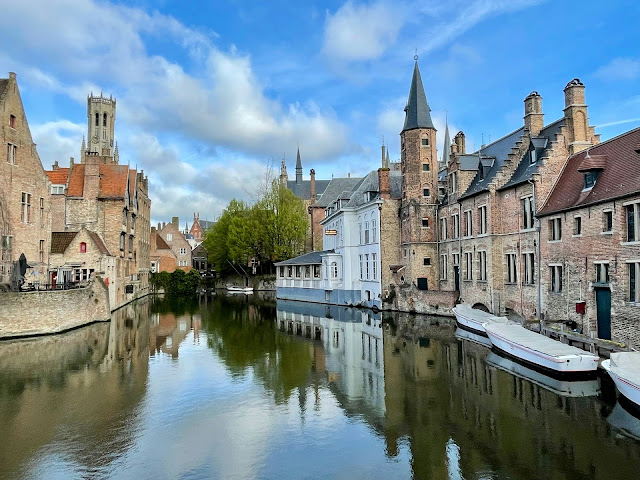Ephesus: Unveiling the Ancient Marvels of Turkey
Ephesus is one of the most fascinating ancient cities in Turkey and the world. It was once a thriving metropolis and a center of trade, culture, and religion in the eastern Mediterranean. Today, it is a Unesco-listed World Heritage Site that attracts millions of visitors every year. If you are interested in exploring the rich history and heritage of Ephesus.
 |
| Ephesus Ancient City |
Best places you can visit Ephesus
The ancient city of Ephesus
The main attraction of Ephesus is the ancient city itself, which covers an area of about 4 km$^2$. You can walk along the marble-paved streets and admire the impressive monuments, such as the Library of Celsus, the Temple of Hadrian, the Great Theatre, and the Odeon. You can also see the remains of public buildings, such as the Agora, the Prytaneum, the Asclepion, and the Brothel. The ancient city is full of history and stories that will transport you back to the Roman times.
The Terrace Houses
One of the most remarkable discoveries in Ephesus is the Terrace Houses, which are located on the slopes of Mount Coressos. These are a complex of seven luxurious Roman houses that belonged to wealthy families and officials. The houses are well-preserved and feature beautiful mosaics, frescoes, marble floors, and fountains. You can also see how the ancient Romans lived with their heating systems, plumbing, and furniture.
The House of The Virgin Mary
According to Christian tradition, the House of The Virgin Mary is where Mary, the mother of Jesus, spent her last years after his crucifixion. The house is a small stone chapel that was discovered in the 19th century by a German nun who had visions of its location. The house is now a pilgrimage site for Christians and Muslims alike, who come to pray and light candles in the peaceful garden.
The Selcuk Museum
If you want to learn more about the history and culture of Ephesus and its surroundings, you should visit the Selcuk Museum. The museum displays a rich collection of artifacts that were excavated from Ephesus and other nearby sites, such as the Temple of Artemis, the Basilica of St. John, and the Cave of Seven Sleepers. You can see statues, coins, jewelry, pottery, weapons, and more. The museum also has a model of Ephesus as it looked in its heyday.
The Cathedral of Saint John
Another important religious site in Ephesus is the Cathedral of Saint John, which was built over the tomb of John the Apostle, one of Jesus' closest disciples. The cathedral was once a magnificent basilica that rivaled Hagia Sophia in Constantinople. It was destroyed by earthquakes and invasions over time, but you can still see some of its columns, arches, and mosaics. You can also climb to the top of its citadel for a panoramic view of Ephesus and its surroundings.
The Temple of Artemis
One of the Seven Wonders of the Ancient World was the Temple of Artemis, which was dedicated to the goddess of hunting, fertility, and nature. The temple was a colossal structure that measured 115 by 55 meters and had 127 columns that reached 18 meters high. It was adorned with sculptures, paintings, and gold ornaments. Unfortunately, the temple was destroyed by fire, floods, and plundering over time. Today, only one column remains standing in a swampy field near Ephesus. You can visit this site and try to imagine how magnificent it once was.
The Isabey Mosque
If you want to see some examples of Ottoman architecture in Ephesus, you should visit the Isabey Mosque. The mosque was built in 1375 by Isa Bey, a local ruler who wanted to create a religious center in Selcuk. The mosque has a distinctive style that combines Seljuk and Byzantine elements. It has two minarets, a large courtyard, and a beautiful prayer hall with intricate decorations. The Isabey Mosque is known for its elegant architecture and serene atmosphere, making it a peaceful place to visit and appreciate the Islamic heritage of the region.
The Ephesus Archaeological Museum
For a comprehensive understanding of the artifacts and history of Ephesus, a visit to the Ephesus Archaeological Museum is a must. Located in Selcuk, the museum houses a vast collection of archaeological finds from Ephesus and the surrounding areas. Here, you can explore a diverse range of exhibits, including statues, sarcophagi, jewelry, pottery, and everyday objects from various periods of Ephesus' history. The museum provides valuable insights into the daily life, art, and religious practices of the ancient city.
The Cave of the Seven Sleepers
A fascinating site associated with legends and religious beliefs, the Cave of the Seven Sleepers is located on Mount Pion near Ephesus. According to Christian and Islamic traditions, seven young men seeking refuge from persecution by a Roman emperor fell into a miraculous sleep and woke up centuries later to find a changed world. The cave, with its natural beauty and religious significance, attracts visitors who come to explore its chambers and learn about the intriguing story behind it.
The Ephesus Terrace Houses Archaeological Site
In addition to the Terrace Houses mentioned earlier, there is another archaeological site in Ephesus dedicated specifically to the residential complexes known as the Ephesus Terrace Houses. These houses belonged to the wealthy and influential residents of Ephesus during Roman times and offer a glimpse into the luxurious lifestyle of the elite. The site features beautifully preserved frescoes, mosaics, and intricate architectural details, providing a unique insight into the daily lives of the privileged few.
The Great Theatre
One of the most impressive structures in Ephesus is the Great Theatre, an ancient amphitheater that could accommodate approximately 25,000 spectators. Built during the Hellenistic period and expanded during the Roman era, this well-preserved theater was the venue for various performances, including theatrical plays, musical concerts, and political gatherings. Standing in the theater's grand seating area, you can imagine the vibrant atmosphere and the cultural significance of this remarkable ancient venue.
The Ephesus Library of Celsus
The Library of Celsus is an iconic structure and one of the highlights of a visit to Ephesus. Built in the 2nd century AD, it served as a monumental tomb for Gaius Julius Celsus Polemaeanus, a Roman senator and governor of the province of Asia. The library housed thousands of scrolls and books and showcased impressive architectural features, including its two-story facade adorned with statues and intricate reliefs. Today, the reconstructed facade stands as a testament to the grandeur and intellectual legacy of ancient Ephesus.
Local Cuisine and Souvenirs
After immersing yourself in the historical treasures of Ephesus, take some time to enjoy the local cuisine and explore the charming markets and shops in the nearby town of Selcuk. Sample traditional Turkish dishes, such as kebabs, mezes (appetizers), and baklava, in one of the local restaurants. Browse through the market stalls and boutique stores to find unique souvenirs, including traditional ceramics, carpets, textiles, and handmade crafts. Engaging with the local culture and flavors adds a delightful touch to your overall experience of Ephesus.
FAQs about Ephesus
1. What is Ephesus?
Ephesus is an ancient city located in present-day Turkey. It was once a bustling metropolis and a hub of trade, culture, and religion in the eastern Mediterranean during the Roman period.
2. Why is Ephesus famous?
Ephesus is famous for its well-preserved ruins and remarkable architectural structures, including the Library of Celsus, the Temple of Artemis, and the Great Theatre. It is also renowned for its historical and cultural significance as a center of ancient civilization.
3. What are the must-visit attractions in Ephesus?
Some of the must-visit attractions in Ephesus include the ancient city itself, the Terrace Houses, the House of The Virgin Mary, the Ephesus Archaeological Museum, the Cathedral of Saint John, and the Temple of Artemis.
4. How can I reach Ephesus?
Ephesus is conveniently located near the town of Selcuk in western Turkey. The nearest airport is Izmir Adnan Menderes Airport, which is well-connected to major international cities. From there, you can easily reach Ephesus by road or rail.
5. Can I visit Ephesus on my own or should I take a guided tour?
You have the option to explore Ephesus on your own or take a guided tour. While independent exploration allows you to set your own pace, a guided tour can provide valuable insights and historical context. It is recommended to have a guide or audio guide to fully appreciate the significance of the ancient city.
6. What is the best time to visit Ephesus?
The best time to visit Ephesus is during the spring (April to June) and autumn (September to October) when the weather is pleasant and the crowds are relatively smaller. Summers can be hot, so it is advisable to visit early in the morning or late in the afternoon to avoid the heat.
7. Are there any restrictions or rules to follow while visiting Ephesus?
While visiting Ephesus, it is important to respect the historical site and follow the rules and guidelines provided by the authorities. These may include restrictions on touching or climbing on the ruins, proper attire, and photography regulations.
8. Can I buy souvenirs in Ephesus?
Yes, you can find a variety of souvenirs in Ephesus and the nearby town of Selcuk. Traditional Turkish crafts, ceramics, textiles, carpets, and local delicacies are popular choices for souvenirs.
9. Is there an entrance fee to visit Ephesus?
Yes, there is an entrance fee to visit Ephesus. The fee may vary depending on the season and whether you choose to visit the additional attractions within the site, such as the Terrace Houses. It is advisable to check the official website or inquire locally for up-to-date information on fees.
10. Can I take children to Ephesus?
Yes, children can visit Ephesus and explore its wonders. However, it is recommended to ensure their safety and supervise them closely, especially around the ruins and steep areas.
Turkey Unleashed: A Traveler's Guide to Embracing Turkish Culture, Cuisine and Etiquette



Comments
Post a Comment
It's easy to leave a comment on our blog – anyone with a Google account can do it. We invite you to share your experiences by leaving a comment as well.